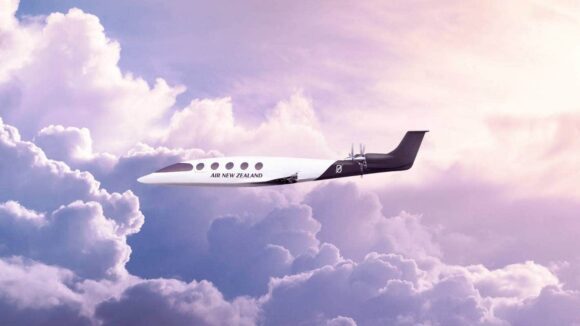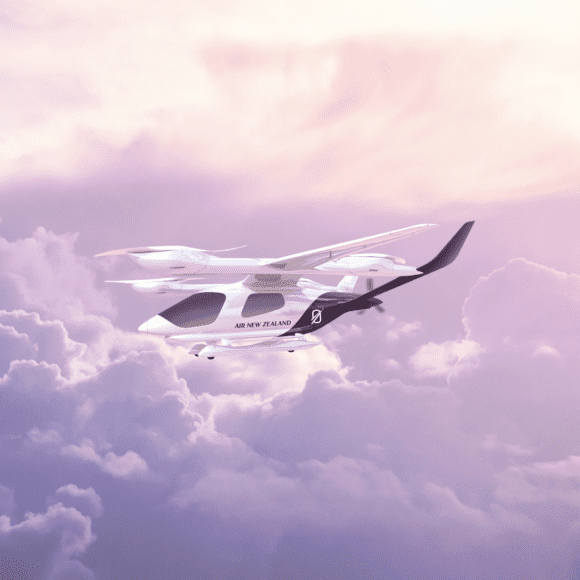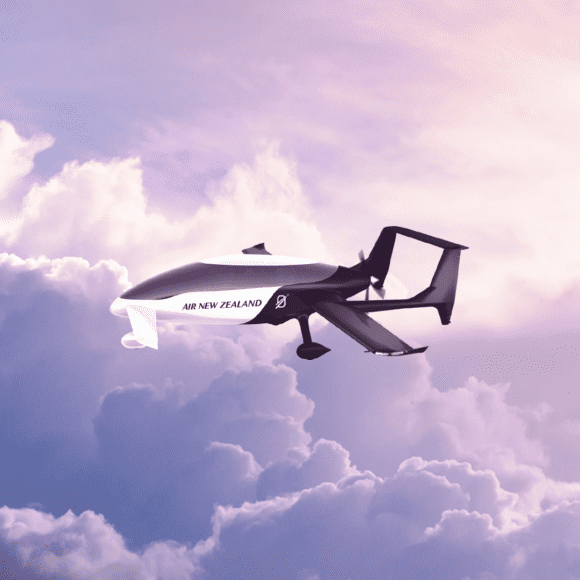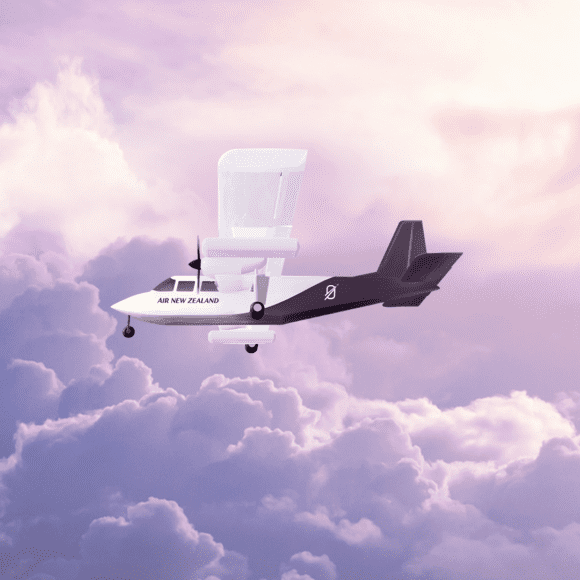
1670960234702 3
Air New Zealand announced four manufacturers of new technology aircraft that it will be working with as a part of its “Mission Next Gen Programme.“ The goal of that program is to test a new technology demonstrator flight in 2026 and, if successful, have new aircraft joining the fleet to replace existing Dash-8-300 aircraft by 2030. The four players announced today include two from the US, Eviation and Beta Technologies, one from the UK, Cranfield Aerospace, and one from France, Volt Aero.
Air New Zealand initially signed a “statement of intent to order” with each manufacturer to acquire three aircraft, with further options for 20 from one or more of the partners after an evaluation process. Chief Executive Officer Greg Foran said the airline selected these partners based on the stage they are in their aircraft development and their shared goal of starting now to take ambitious action on climate change.
“Mission NextGen Aircraft is not about backing one innovator. It’s about working with a range of leaders in zero-emissions aircraft technology to help move the whole ecosystem along. Our goal is to confirm our commitment with one or more of these partners in the next 12 months with the ambition of purchasing an aircraft for delivery from 2026,” said Foray. “The learnings we will take from flying an aircraft with next-generation propulsion technology from 2026 will then pave the way for our long-term partners to deliver an aircraft that can replace our Q300 turboprop domestic fleet. Getting a zero-emissions aircraft off the ground by 2026 is going to be challenging. But we’re incredibly ambitious because we need to be.”
Air New Zealand also signed a strategic alliance agreement with Hiringa Energy, a New Zealand-based green-hydrogen supply and refueling infrastructure company. “While the aircraft play a pivotal role, infrastructure partners are just as important. Through this agreement, we will explore the future green hydrogen supply solutions for our commercial demonstrator, ambitious with a focus on ensuring any solutions we create to meet our 2026 goal are also building a platform for a larger next-generation fleet from the 2030s,” said Foran.
“Eviation’s Alice is the first flight-proven all-electric commuter aircraft, leading the world into a new era of carbon-free, cost-effective and  convenient aviation,” said Gregory Davis, President and CEO of Eviation.
convenient aviation,” said Gregory Davis, President and CEO of Eviation.
“I am delighted with Air New Zealand’s endorsement of Alice, which will provide an effective way to decarbonize flights on their many regional routes, and I pay tribute to their commitment to innovation and sustainability. The zero-emissions Alice is a beautiful aircraft, and I look forward to seeing it soaring through the skies of New Zealand.”
“Air New Zealand has a long history of embracing innovation and taking action toward change, and the world needs global thought leaders  like this to make a meaningful difference in the climate crisis right now,” said Kyle Clark, BETA’s CEO and Founder. “Air New Zealand is stepping up, and we will be right here with them to make it a reality.”
like this to make a meaningful difference in the climate crisis right now,” said Kyle Clark, BETA’s CEO and Founder. “Air New Zealand is stepping up, and we will be right here with them to make it a reality.”
“We’re proud of our selection by Air New Zealand to offer the Cassio aircraft as a unique solution that perfectly responds to the airline’s  sustainable fleet ambitions,” said Jean Botti, VoltAero’s CEO and Chief Technical Officer.
sustainable fleet ambitions,” said Jean Botti, VoltAero’s CEO and Chief Technical Officer.
“Cassio provides outstanding safety and versatility through the propulsion system’s dual source of electric-hybrid energy. Additionally, Cassio’s configurable cabin – along with the propulsion system’s adaptability to biofuels and hydrogen for its thermal engine – opens Air New Zealand’s regional network to next-generation airplanes that are clean, quiet and efficient.”
“At Cranfield Aerospace, we are extremely proud to have been selected by Air New Zealand as a Mission Next Gen partner. The airline is  renowned in the industry for being a powerhouse of sustainability, and given Cranfield Aerospace’s ambition to design and manufacture zero-emissions, green hydrogen-fuelled aircraft, our collective ambitions couldn’t be more aligned.
renowned in the industry for being a powerhouse of sustainability, and given Cranfield Aerospace’s ambition to design and manufacture zero-emissions, green hydrogen-fuelled aircraft, our collective ambitions couldn’t be more aligned.
“We look forward to working with the Air New Zealand team to bring zero emissions flight to their domestic network and help pave the way for the next revolution in aviation.”
The Bottom Line
Air New Zealand has down-selected from 30 plus submissions to four that are far enough along to be feasible for its 2026 flight trials. We look forward to seeing which of these technologies prove the most promising and how many will make it to the testing phase and potentially passenger service from 2030.
Views: 3




